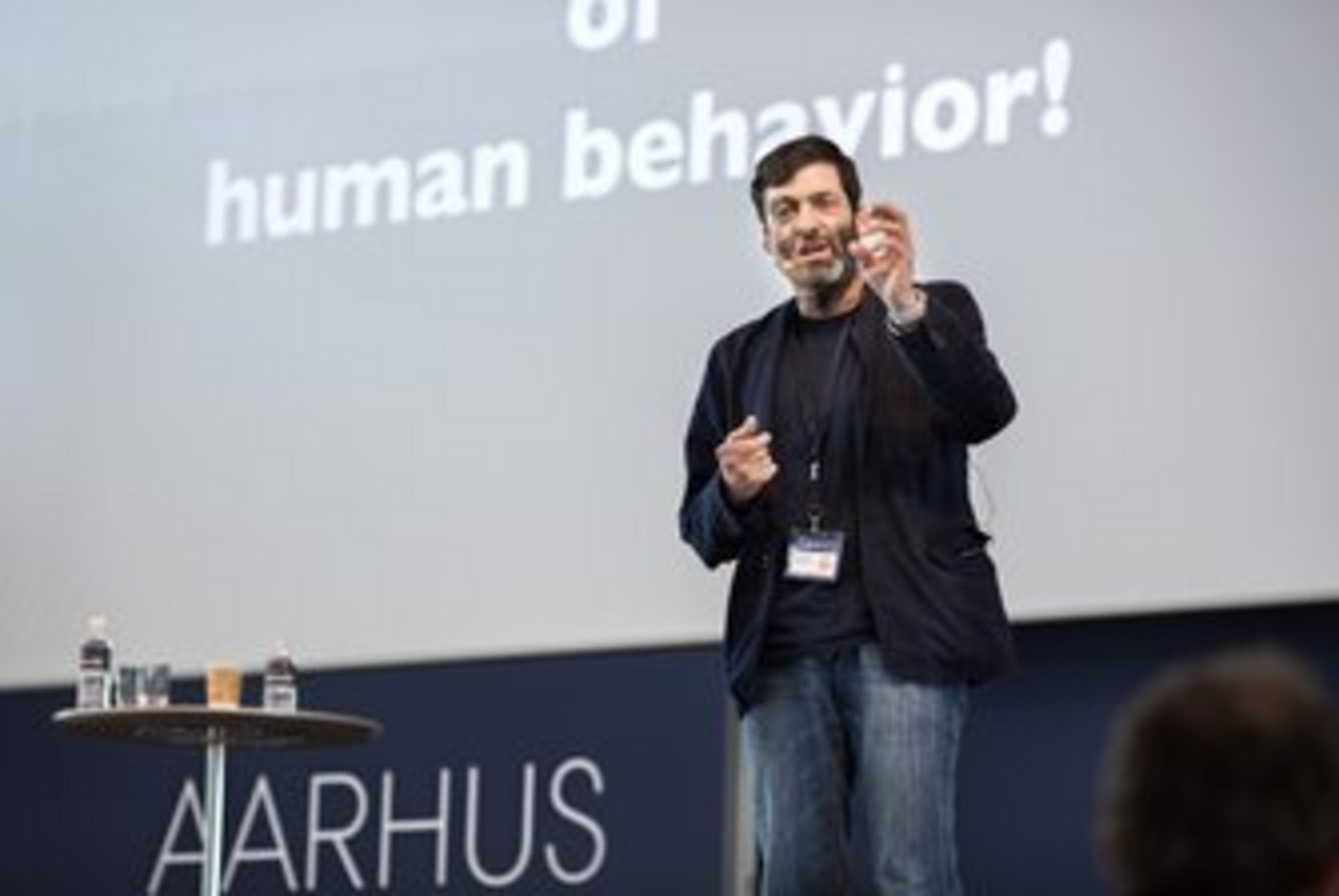Homo Irrationalis - the irrational human
The Alumni Newsletter met with Professor Dan Ariely, Duke University, for a brief talk about behavioural economics and its applications.

A man comes home to his mother with four women. The man tells his mother that he is going to marry one of them and that she has to guess which of the four is his wife-to-be. After having spoken with the four women in private one by one, the mother concludes: “It’s this one. She’s the one you want to marry.”
Slightly astonished, the man says: “That’s right, mum! How did you know? Do you really know me so well? What gave it away? And the mother replies:
“She is the only one of the four that I hate!”
The irrational human
Dan Ariely, one of the world’s leading researchers in behavioural economics, is on stage at the 2017 Aarhus BSS Business Conference, and he opens his speech with a joke. The scene is set.
Over the course of the next hour, Dan Ariely takes the audience on a tour of the most irrational corners of human nature. When we act without giving any thought to it. And when we invent rational explanations for our irrational behaviour.
It is entertaining, it is surprising, and it is extremely interesting.
An expert in behaviour
Dan Ariely is an expert in man’s irrational behaviour. He has written a number of bestsellers, has made documentaries about how and why we lie and deceive, and he is a popular TED talker.
In a brief interview with the Alumni Newsletter, he describes the difference between behavioural and traditional economics as follows:
“Traditional economic teachings are based on the assumption that we, as humans, generally act rationally and thus, as a rule, make the right decisions. But we simply don’t. Man is not rational, and as such the behavioural economist doesn’t assume anything,” says Dan Ariely.
Instead, behavioural economists base their conclusions on experiments and observations of actual human behaviour in various situations. In terms of research, behavioural economists draw more on psychology, anthropology and sociology than on traditional economics.
Burnt in his youth
Dan Ariely became interested in behavioural economics in his youth after being involved in an accident which left burns on 70 per cent of his body. In the following months at the hospital, he tried, among other things, to get the nurses to change their approach when his bandages needed to be replaced. It was painful, and it took about an hour.
“You can remove bandages in two ways. Slowly, and let it take a while longer, or quickly, and get it over with fast. My nurses firmly believed in the latter approach, which I was able to prove was a mistake several years later. It was more painful. How could they have such a flawed approach to their profession? After all, they weren’t bad people. They believed they were doing what was best for the patient. But they weren’t,” says Dan Ariely.
What do we know about sleep
To Dan Ariely, the behavioural economics approach can be used partially in relation to how to we set up various designs for others, so that they make the right decisions without thinking about it, and partially in relation to ourselves.
“Think about how little data we actually have on human behaviour, and how little we really know about our own behaviour. For example, around age 50, you should be a bit of an expert on sleep. You’ve slept a great deal in your life, and you know how important it is for you how well you’ve slept. At that age, you ought to know which temperature the bedroom should be, if the mattress should be soft or hard, how to arrange the pillows so that you get the best sleep. But very few people know these things, because we don’t study them in great detail,” says Dan Ariely.
Everyone wants to influence others
He finds that governments, organisations and companies are all increasingly interested in behavioural economics.
The reason is that they want to increase their understanding of how people respond, their ability to predict the responses, and finally their ability to control people’s behaviour or guide it in a specific direction.
“After all, governments, organisations and companies all want to affect our behaviour, but if they only rely on intuition, they won’t be very successful,” says Dan Ariely.
One of the points is that information alone doesn’t make much difference in relation to how we ultimately behave. For example, we know that smoking is unhealthy. Nevertheless, there are still many smokers, and new ones are emerging. We know that eating fatty foods is unhealthy. Nevertheless, obesity is an increasing problem.
Because, as humans, we are basically irrational.
Read more about Dan Ariely